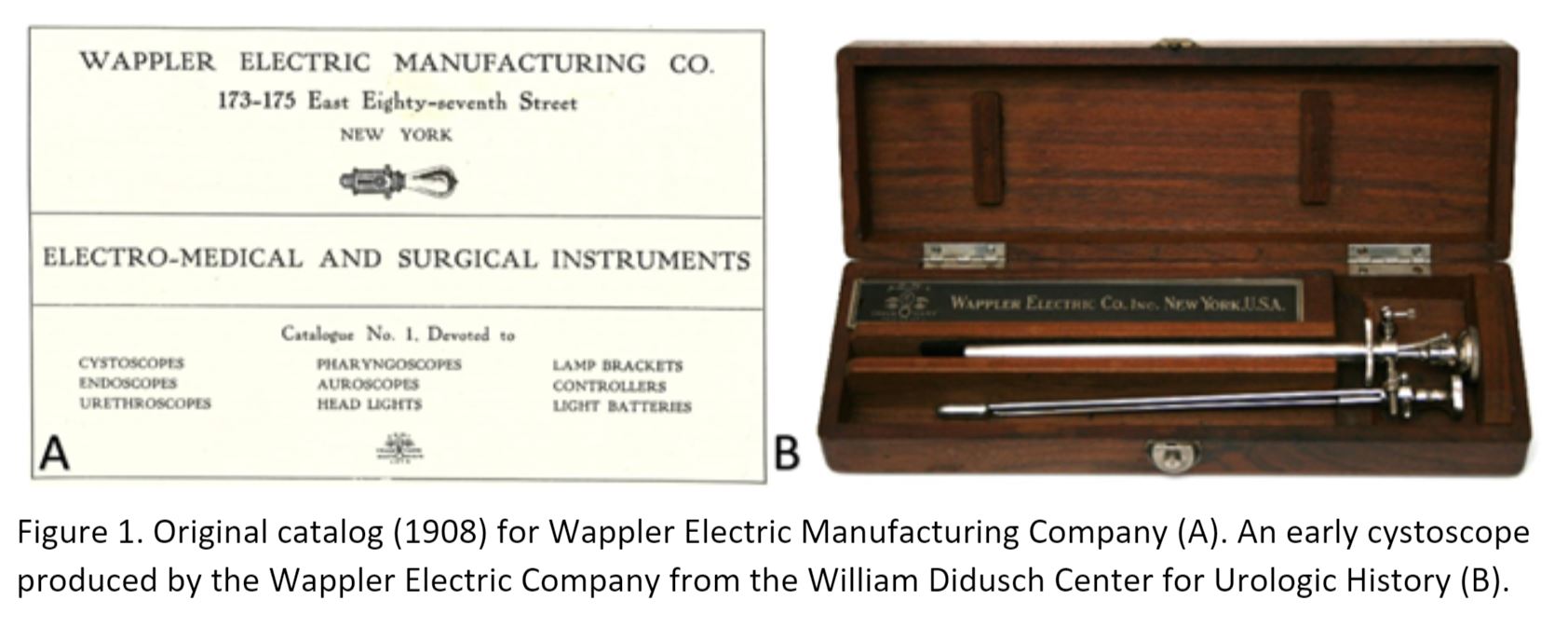Back
Forums
History of Urology Forum
HF02-12: Reinhold Wappler: An Immigrant Engineer Who Transformed the Practice of Urology
Friday, May 13, 2022
1:00 PM – 1:30 PM
Location: Room 355
Eric Macdonald*, Ella Taubenfeld, Robert Waldbaum, Lake Success, NY

Eric J. Macdonald
The Smith Institute for Urology
Poster Presenter(s)
Introduction: The cystoscope has been the most important tool in urology for over a century. Countless versions were created in the late 19th century upon recognition of its potential to revolutionize the field. Though most cystoscopes were envisioned by urologists, it was their non-physician colleagues who actualized them. Among these inventors was Reinhold Wappler, a German-born engineer. His creativity and commitment to the field of urology allowed tremendous strides to be made at the turn of the century, chiefly through his central role in the invention of the Brown-Buerger cystoscope.
Methods: Information was obtained from documents at the William P. Didusch Center for Urologic History. Primary documents were reviewed including personal letters, brochures, and catalogs. Multiple books and articles on the subject were also reviewed.
Results: Wappler was born in Germany in 1870 and immigrated to New York City in 1890. His aptitude for engineering quickly led him to start his own medical equipment company in New York. At this time, urologists were reliant on fragile cystoscopes from Europe that frequently needed to be shipped overseas for repairs. Colleagues urged Wappler to become involved with production and repair of cystoscopes. In 1900, Wappler founded the American Cystoscopy Company which later became American Cystoscope Makers Inc (ACMI). He soon became intimately involved in the production of the most important cystoscopes of his time. In 1902, he worked with Bausch and Lomb to develop a new optical system that would become part of the first electro-cystoscope manufactured in the United States (US). Tilden Brown and Leo Buerger, both prominent genitourinary surgeons of the time, also utilized Wappler’s skills to effectuate countless modifications to the cystoscope. These modifications culminated in the Brown-Buerger cystoscope—a historic device to be used by urologists across the US for decades.
Conclusions: The invention of the modern American cystoscope would not have been possible without Reinhold Wappler. His engineering prowess and unique skillset provided a perspective that allowed countless abstract ideas proposed by urologists to become a reality. Though his name is not credited on the cystoscope that transformed the field of urology, Wappler’s vital role in its invention should be celebrated.
Source of Funding: none

Methods: Information was obtained from documents at the William P. Didusch Center for Urologic History. Primary documents were reviewed including personal letters, brochures, and catalogs. Multiple books and articles on the subject were also reviewed.
Results: Wappler was born in Germany in 1870 and immigrated to New York City in 1890. His aptitude for engineering quickly led him to start his own medical equipment company in New York. At this time, urologists were reliant on fragile cystoscopes from Europe that frequently needed to be shipped overseas for repairs. Colleagues urged Wappler to become involved with production and repair of cystoscopes. In 1900, Wappler founded the American Cystoscopy Company which later became American Cystoscope Makers Inc (ACMI). He soon became intimately involved in the production of the most important cystoscopes of his time. In 1902, he worked with Bausch and Lomb to develop a new optical system that would become part of the first electro-cystoscope manufactured in the United States (US). Tilden Brown and Leo Buerger, both prominent genitourinary surgeons of the time, also utilized Wappler’s skills to effectuate countless modifications to the cystoscope. These modifications culminated in the Brown-Buerger cystoscope—a historic device to be used by urologists across the US for decades.
Conclusions: The invention of the modern American cystoscope would not have been possible without Reinhold Wappler. His engineering prowess and unique skillset provided a perspective that allowed countless abstract ideas proposed by urologists to become a reality. Though his name is not credited on the cystoscope that transformed the field of urology, Wappler’s vital role in its invention should be celebrated.
Source of Funding: none

.jpg)
.jpg)